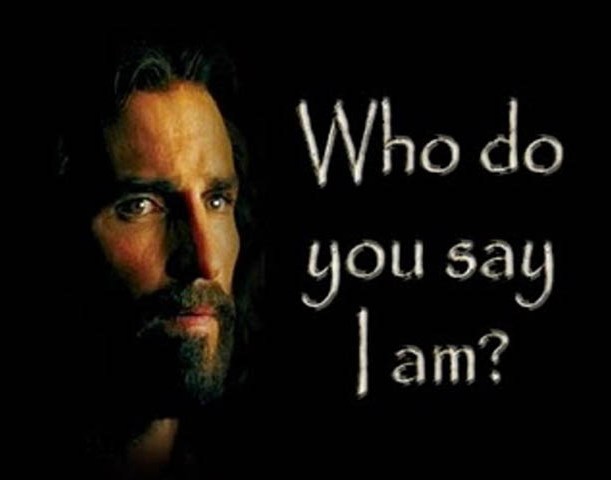Give to God What Belongs to God. What does that mean?

Isaiah 45:1,4-6; 1Thes 1:1-5; Mt. 22: 15-21
Fr. Nelson Lobo OFM Cap
Story: A Little Boy desperately wanted $100.00 to buy some toys and prayed to God for a whole week, but nothing happened. So, he decided to write a letter to God requesting the $100.00. When the Post Office got the letter addressed to God, they forwarded it on to the White house. The President surprisingly received it was very impressed, touched and amused so he instructed his aid to send the boy $5.00. He thought $5.00 would be a lot to the little boy. And the boy was, indeed, delighted by the money. He sat down and immediately wrote a thank you note, which read: Dear God, thank you very much for sending the money. However, I noticed that for some reason you had to send it through Washington DC and, as usual, they kept most of it.
Understanding the Bible on Money: Sixteen of the 38 parables were concerned with how to handle money and possessions. In the Gospels, an amazing one out of 10 verses deal directly with the subject of money. The Bible offers 500 verses on prayer, less than 500 verses on faith, but more than 2000 verses on money and possessions. (Howard L. Dayton Jr.)
Understanding The Tax System: The Romans levied several taxes on the Jews. There was something called the ground tax, it was a tax of 10% of whatever came out of the ground such as grains, wine and oil. Then there was the income tax, just 1% of one’s cash income with no deductions, of course. And, finally, there was the poll tax. It amounted to a denarius which was approximately the wage of a common labourer for one day’s work. And it was levied on every male from age 14 through 65 and on ever female from age 12 through 65. It was this poll tax that was the subject of the question. It was a special tax, because it had to be paid in Roman silver coinage. Other business and tax matters could be paid in copper coinage, gold bullion, or other acceptable currency. But the poll tax had to be paid with the Roman silver denarius. And, these coins bore the image of the emperor, and they were inscribed with an inscription “Tiberius Caesar, Son of the divine Augustus.” Now, this tax was a point of great controversy among the Jews. The Herodians, of course, were united in favour of the tax. In fact, they were in favour of all the Roman taxes. The Pharisees, on the other hand, were very much opposed to paying Caesar any taxes at all. But it was the poll tax that irritated the Pharisees the most. Because they had to use a coin which bore a graven image of someone who claimed to be a descendant from a god.
Understanding the Trap- Now, what’s odd about this question is that it was posed by a group of Pharisees and Herodians The Pharisees hated Rome and the Herodians wanted better relations with Rome and approved Roman taxation. The only reason they joined forces was because they both hated Jesus and wanted Him destroyed. Jesus knew what these men were thinking long before they showed up. Can you see the trap laid by the Pharisees and the Herodians? If Jesus answered that the people had to pay their taxes the Pharisees could condemn Him to the crowds as a friend of the hated Romans. BUT if Jesus replied that people should Not pay their taxes the Herodians would brand Him an enemy of Rome and had Him arrested.
Understanding Jesus’ Answer: Jesus’ response, of course, put their conspiracy to flight. He began by calling them what they are. “Why are you putting me to the test, you hypocrites?”. The charge of hypocrisy was aimed directly at the Pharisees, for they paid the poll tax even though they judged it to be a violation of two of the ten commandments. The Herodians couldn’t accuse Jesus of being a revolutionary because He’d just endorsed paying the Roman taxes. He said: “Give to Caesar what is Caesar’s, and to God what is God’s.”
Understanding our Responsibility: How do we know what to give to the government? By the images on the bills and coins. So, then, what do I give to God? Where do I find God’s image? Genesis 1:26 says, “Then God said, ‘Let us make man in our image, in our likeness…’” We were made in God’s image/likeness. We need to give what belongs to Him – back to Him. We need to give ME to God. Now how do we do that? How do we give ourselves to God? First, we need to BELONG to Him, and to do that we need to believe in Jesus. Ephesians 1:13 tells us. “Having believed (in Jesus), you were marked in him with a seal, the promised Holy Spirit”.
Conclusion: Dear brothers and sisters we are the coins. We are the image of God’s realm. We owe God our whole being for we are created in His Image. You know the Pharisees would not have missed what Jesus was really saying about them. He had been hammering them for days for exactly this failure. In parables, Jesus told them that they are God’s workers in the vineyard, who refuse to give to God the fruit of the vineyard. They are God’s sons who say they will serve him, but then refuse. They are the sons of God’s Kingdom who refuse to come to the marriage of the King’s Son.
Jesus does not speak about two kingdoms. He speaks about two images. We were made in God’s image therefore Jesus is calling us to “Give to God… what is God’s!” In other words, we who carry God’s image to what degree and in what ways are we giving ourselves to God what belongs to God? To what degree and in what ways is the image of Christ evident in our life? As Christians how do we portray God’s image to the world? The Bible tells us: “‘You shall love the LORD your God with all your heart, with all your soul, and with all your mind.’ 38 This is the first and great commandment. 39 And the second is like it: ‘You shall love your neighbour as yourself.’ (Mat 22:37-40). Are we following God’s command?









